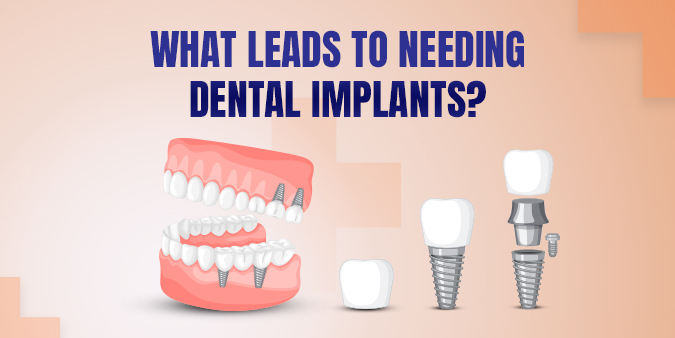
What Leads to Needing Dental Implants? Key Factors Explained
Thursday, 30th May 2024Dental implants are a popular and effective solution for replacing missing teeth. Understanding the key factors that lead to needing dental implants can help in maintaining good oral health and preventing tooth loss. This article explores the common reasons why people might need dental implants and the benefits they offer.
What Are Dental Implants?
Dental implants are artificial tooth roots made of titanium that are surgically placed into the jawbone. They provide a stable foundation for replacement teeth, such as crowns, bridges, or dentures, which look and function like natural teeth.
Key Factors Leading to Needing Dental Implants
Tooth Decay
Tooth decay is one of the most common reasons for needing dental implants. When cavities are left untreated, they can progress to the point where the tooth structure is too damaged to be restored with fillings or crowns. Severe decay can lead to tooth loss, making dental implants a necessary solution.
Gum Disease
Gum disease (periodontal disease) is another major factor that can lead to tooth loss. In its advanced stages, gum disease can cause the gums to recede and the bone supporting the teeth to deteriorate. This can result in loose teeth or teeth that need to be extracted, requiring dental implants for replacement.
Trauma or Injury
Trauma or injury to the mouth can result in the loss of one or more teeth. Accidents, sports injuries, or falls can cause teeth to be knocked out or damaged beyond repair. Dental implants can effectively replace missing teeth and restore function and appearance.
Congenital Absence
Some individuals are born with a congenital absence of certain teeth, a condition known as hypodontia. In such cases, dental implants can be used to replace the missing teeth and provide a complete, functional smile.
Failed Dental Restorations
Failed dental restorations, such as crowns, bridges, or dentures, can sometimes lead to the need for dental implants. Over time, these restorations may fail due to wear and tear, poor oral hygiene, or other factors. Dental implants offer a more permanent and durable solution.
Bone Loss
Bone loss in the jaw can result from long-term tooth loss, periodontal disease, or other factors. When teeth are missing, the jawbone can deteriorate over time. Dental implants help stimulate the bone and prevent further bone loss, providing a stable foundation for replacement teeth.
Severe Wear and Tear
Severe wear and tear on the teeth can occur due to habits such as grinding (bruxism) or clenching. This can lead to tooth damage and eventual tooth loss. Dental implants can replace worn-out or damaged teeth, restoring function and aesthetics.
Benefits of Dental Implants
Natural Appearance
Dental implants look and feel like natural teeth, enhancing the appearance of your smile. The replacement teeth are custom-made to match the color, shape, and size of your natural teeth.
Improved Function
Dental implants restore full chewing and speaking abilities, making it easier to eat your favorite foods and speak clearly without worrying about slipping dentures or missing teeth.
Durability
With proper care, dental implants can last a lifetime. They are made of durable materials that withstand the forces of chewing and daily use.
Bone Preservation
Dental implants help prevent bone loss in the jaw by stimulating the bone and maintaining its density. This helps preserve facial structure and prevent the sunken appearance that can result from long-term tooth loss.
Improved Oral Health
Dental implants do not require altering adjacent teeth, as is the case with dental bridges. This helps maintain the health of your remaining natural teeth. Additionally, implants make it easier to maintain good oral hygiene, reducing the risk of cavities and gum disease.
Conclusion
Several factors can lead to the need for dental implants, including tooth decay, gum disease, trauma, congenital absence, failed restorations, bone loss, and severe wear and tear. Dental implants offer a reliable and long-lasting solution for replacing missing teeth, providing numerous benefits such as natural appearance, improved function, durability, bone preservation, and enhanced oral health. If you are experiencing tooth loss or dental issues that may require implants, consult with your dentist to discuss your options and take the first step toward restoring your smile


